CSUN Chicana/o Studies Honors LA Poet Laureate and Celebrated Native Son Luis J. Rodriguez
You know there’s a great presence on campus when students, faculty — even the university president and provost — carve an hour or two out of spring-semester finals to sit, listen and cheer an evening of poetry.
Only an indomitable spirit such as Luis J. Rodriguez could pack in more than 200 undergrads and grad students at California State University, Northridge just days before Commencement 2015. On May 6, the Department of Chicana/o Studies honored Rodriguez, a native Angeleno and self-proclaimed “Valley Guy,” for his recent appointment as Poet Laureate of Los Angeles.
The free afternoon program was sponsored by a collaboration between the Office of the Provost, the Department of Chicana/o Studies and the Office of Governmental and Community Relations. The event combined a poetry reading by the celebrated writer with a salon-style, spoken-word performance by a number of CSUN’s Chicana/o studies students.
Rodriguez, visibly inspired (tapping his foot to the beat and nodding his head) and tickled by the students’ bold performances, even brought his wife and co-activist, Trini, and daughter Andrea and son Luis (also a writer) to the celebration at the Northridge Center on campus.
“We have to fight for beauty and art,” said Rodriguez, appointed by Los Angeles Mayor Eric Garcetti as Poet Laureate in 2014. “That’s why I love you young warriors. I love what you’re doing here at CSUN. It’s hard to do good, to be a community of dignity and respect.
“Sometimes, we don’t even know how to find the words. And that’s a battle we have to win. All of us have a story, no matter what color, no matter what class.”
Brought up in Watts and East Los Angeles, Rodriguez is a community activist and vocal advocate for the power of words to change lives. Best known for his memoir Always Running: La Vida Loca, Gang Days in L.A., Rodriguez is also an award-winning poet. His collections include My Nature is Hunger, The Concrete River, Trochemoche and Poems Across the Pavement. He published a sequel to Always Running in 2011 called It Calls You Back: An Odyssey Through Love, Addiction, Revolutions, and Healing. The following year, the book became a finalist for the National Book Critics Circle Award in Autobiography.
Rodriguez also is founder and editor of Tia Chucha Press, which has a bookstore and cultural center in Sylmar that is popular with CSUN students. His ties with the university run deep. With Chicana/o studies Professor Denise Sandoval, he co-edited Rushing Waters, Rising Dreams: How the Arts are Transforming a Community in 2012. He also co-produced a documentary of the same name, written by John F. Cantu. The book won an award from the Independent Publishers Association.
In her introduction of Rodriguez, her mentor, Sandoval called him “one of the leading Chicana/o writers in America” and a “community and urban peace activist.”
“I was a student in the 1990s at UC Berkeley, and I was angry and hungry at the same time,” the professor told the audience at CSUN. When she came to CSUN as a master’s student in Chicana/o studies, she recalled, she discovered Always Running for the first time.
“It was so enthralling that I couldn’t put it down,” she said. “I stayed up all night.”
She finally met her new literary hero, she said, when she was a doctoral student. It was their mutual love of low-rider cars that brought them together and sparked a friendship.
“As Mayor Garcetti said [when appointing Rodriguez as Poet Laureate], ‘He will take us to new heights,’” Sandoval said.
For a CSUN crowd of students hungry for inspiration at a do-or-die point in the academic calendar, the early May celebration was perfect timing.
Dressed in a black suit jacket, blank pants and a black T-shirt, Rodriguez seemed to know it — and he returned the literary love. Before the event, he shook hands, autographed books and happily greeted the students and staff who crowded around him.
Chino Contreras, a CSUN student from Pacoima, was the first up on stage to perform his own brand of slam poetry.
“It’s an honor to be honoring Mr. Rodriguez,” Contreras said. “I hope I don’t offend anyone — but I speak from the heart.” In the last of three spoken-word pieces he presented, Contreras said, he hoped to send a message directly to his peers, and his community:
“Just like Luis Rodriguez, making something out of nothing is a virtue … and now it’s your decision. Ignoring the negative words and making something positive.”
The six students who followed Contreras included young men and women — even a songwriter with an acoustic guitar, Christian Reichle, and Dora Lopez, who performed an eloquent, emotional piece and then left the auditorium (reluctantly) to take a final exam.
At the start of the program, CSUN President Dianne F. Harrison welcomed the Poet Laureate to campus, thanked him for inspiring the nation’s youth — and she thanked the students for attending the event during finals.
“It’s a really busy time of year, and a stressful time of year,” Harrison said. “Taking the time to get into the beauty of poetry, literature and the arts is a good antidote, I believe, for stress.”
She recalled the mayor’s recent State of the City address, which took place at CSUN’s Valley Performing Arts Center in mid-April, when he lauded the university’s commitment to the arts — locally and for the future.
“We have one of the most diverse campuses in this country,” Harrison said. “We are very proud of the Chicana/o studies program. You, our students, reflect not only California, but the future of our United States. We hope you will take your appreciation of the arts out into the community.”
Harry Hellenbrand, outgoing provost and vice president for academic affairs as well as a longtime professor of American literature, echoed the president’s sentiments in his introduction of Rodriguez.
“Always Running is one of the great interpretations of growing up in America and coming to terms with American youth,” said Hellenbrand, who is leaving his administrative post after 11 years at CSUN to return to teaching this fall. “He is one of the strongest voices along with Joan Didion … He is one of the most important American writers of the late 20th and early 21st centuries, and we’re really fortunate to have him here. Luis, thank you for being here.”
Rodriguez read several of his own poems, including one about words themselves; a new piece called “Do or Die,” dedicated to his mother, who recently passed away; and a sonnet.
Always an educator of youth, Rodriguez explained the sonnet form to the crowd of students: “My favorites are by Shakespeare. It’s all iambic pentameter, except for the bottom is a couplet.”
“Now I’m trying to do all kinds of things, just to challenge myself,” Rodriguez said, explaining his recent embrace of sonnets — but this singular Poet Laureate’s sonnets are about low-riders, NASCAR, hip hop and “Big America!”
For his final readings at the event, Rodriguez recited a love poem he wrote for Trini, and then he concluded with a love poem for Los Angeles.
“I remember when I was 15 (and homeless), I used to sleep in church pews, abandoned cars, the LA River, all-night movie theaters,” said Rodriguez, a former addict who’s been 22 years sober. “And during the day, I walked those shelves [at the public library].
“It almost feels like another planet, but I don’t want to forget. I want to help our young people. Now I’m in the Valley — I’ve gone full circle. I’ve been here 15 years. I never thought of myself as a Valley guy. I guess I’m a Valley guy!
“To truly love LA, you have to see it with different eyes. Astute, perhaps. Yet, I love LA … even when I slept in abandoned cars.”
Before taking questions from students and others in the audience, Rodriguez charged the young artists to march on with their passion and embrace their cultural and family roots.
“We need fully alive human beings, living the lives they were meant to live,” he said. “That’s what I really believe. That’s what I’m here to do.”

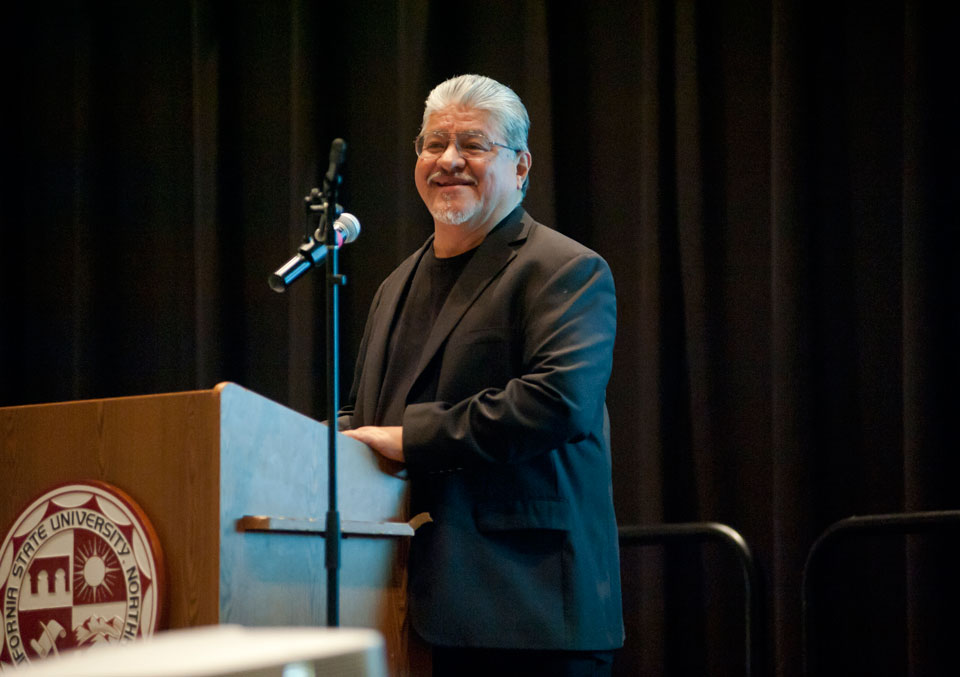
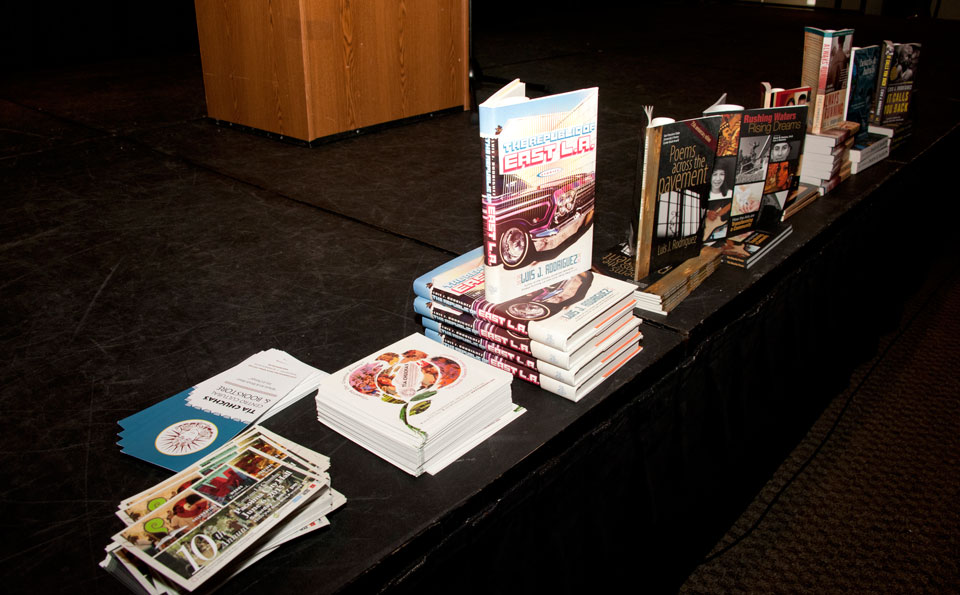
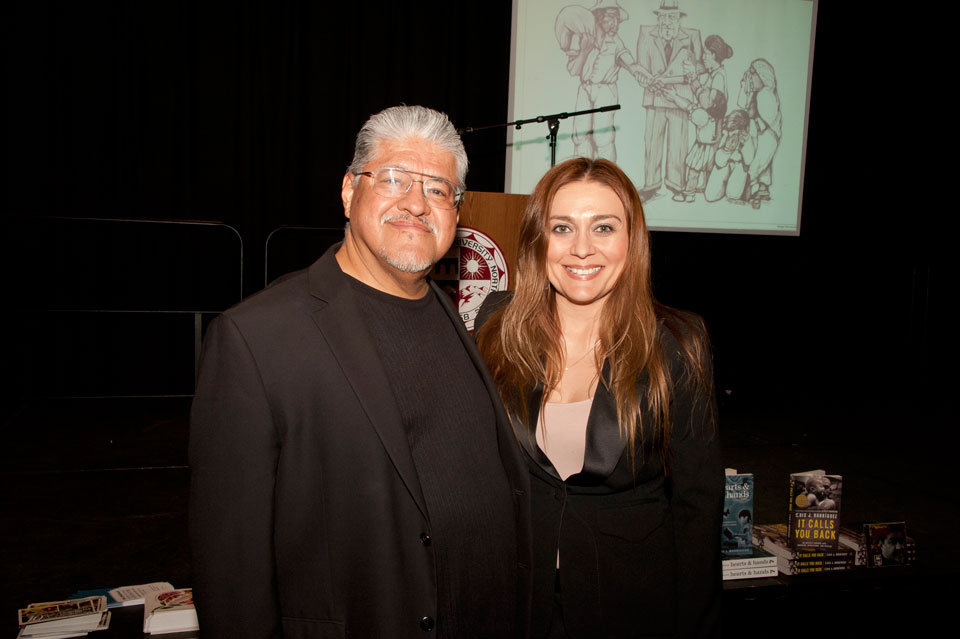
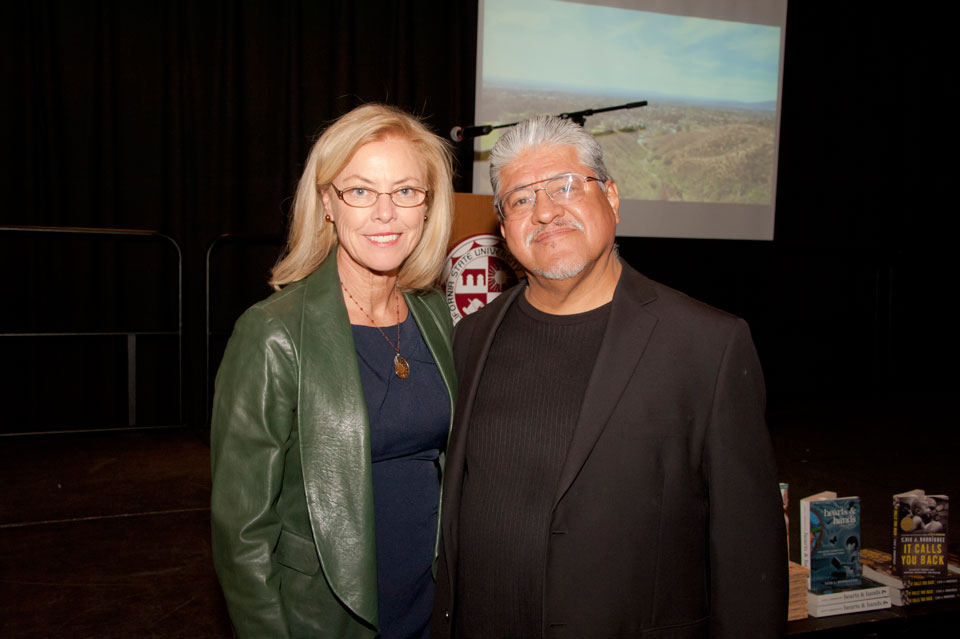
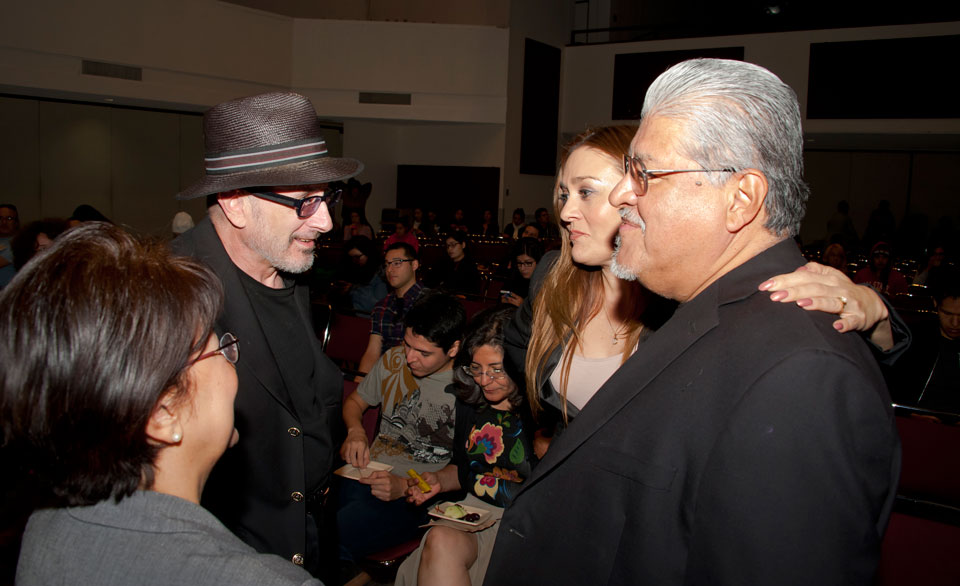
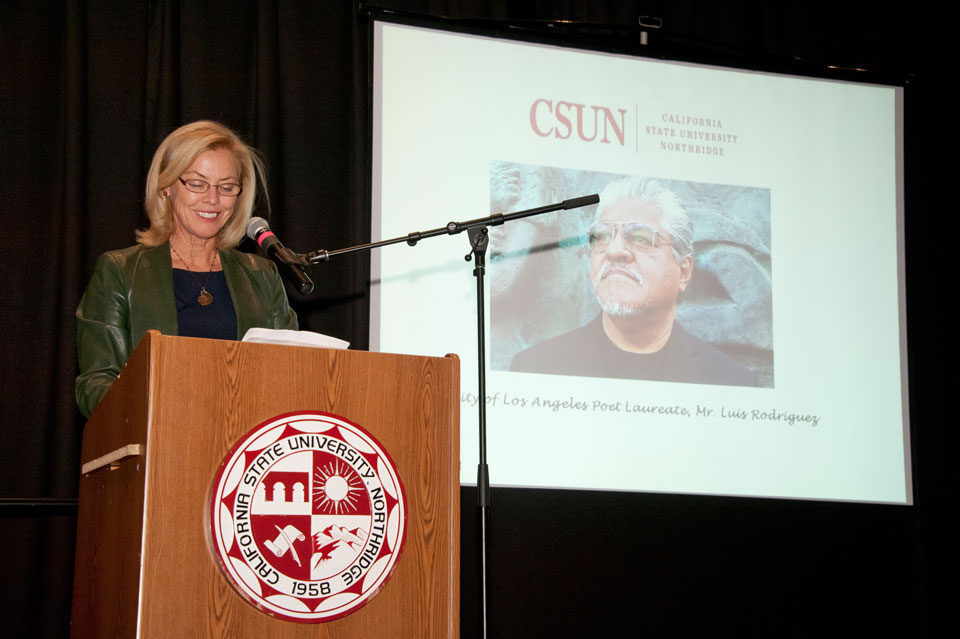
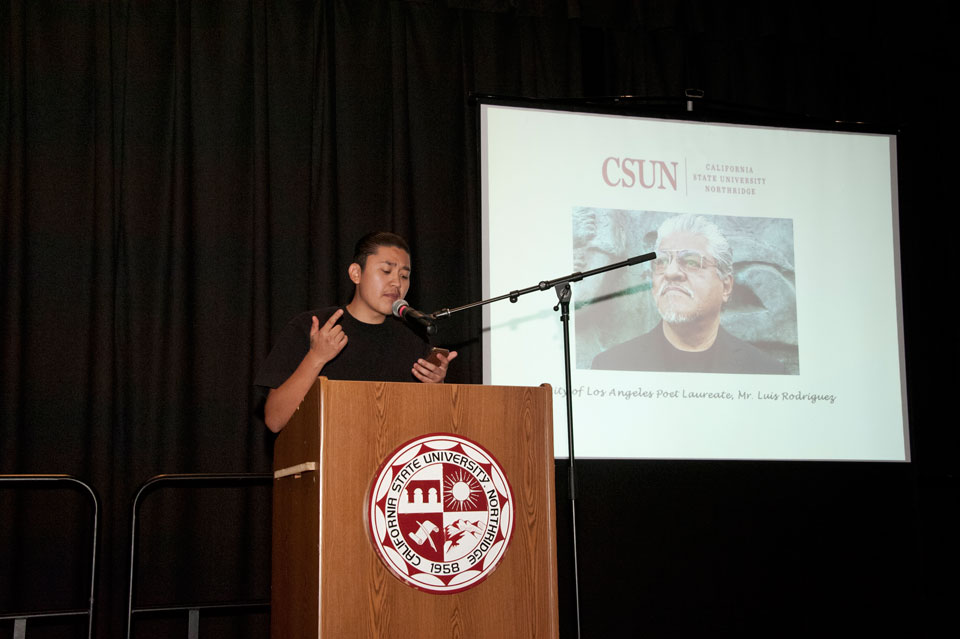
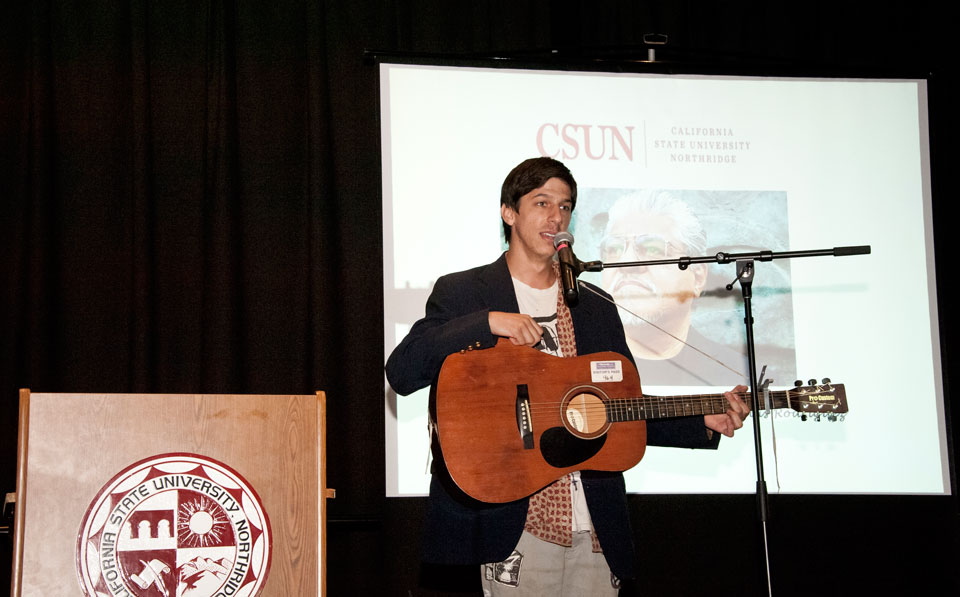
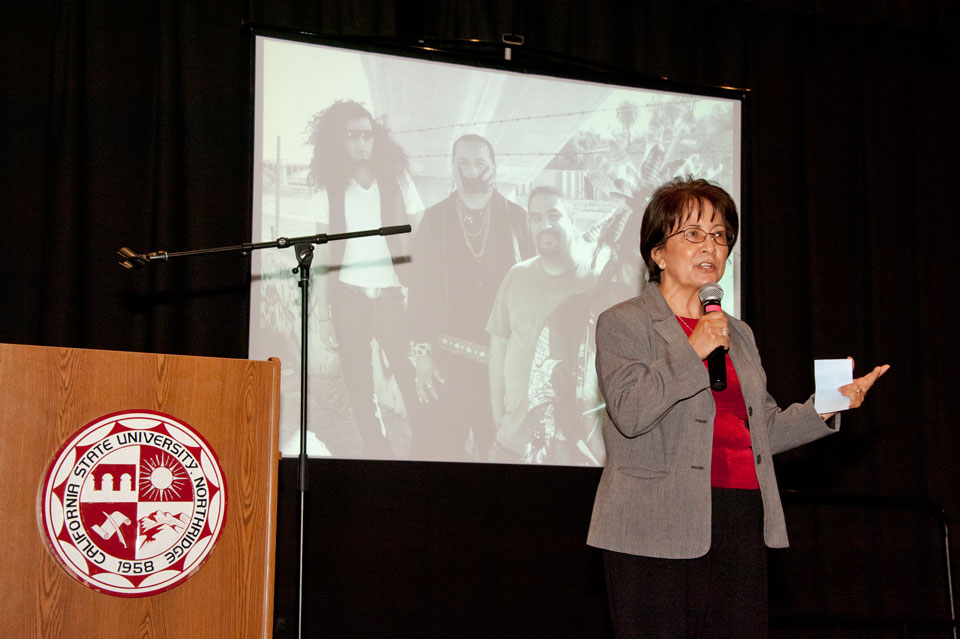
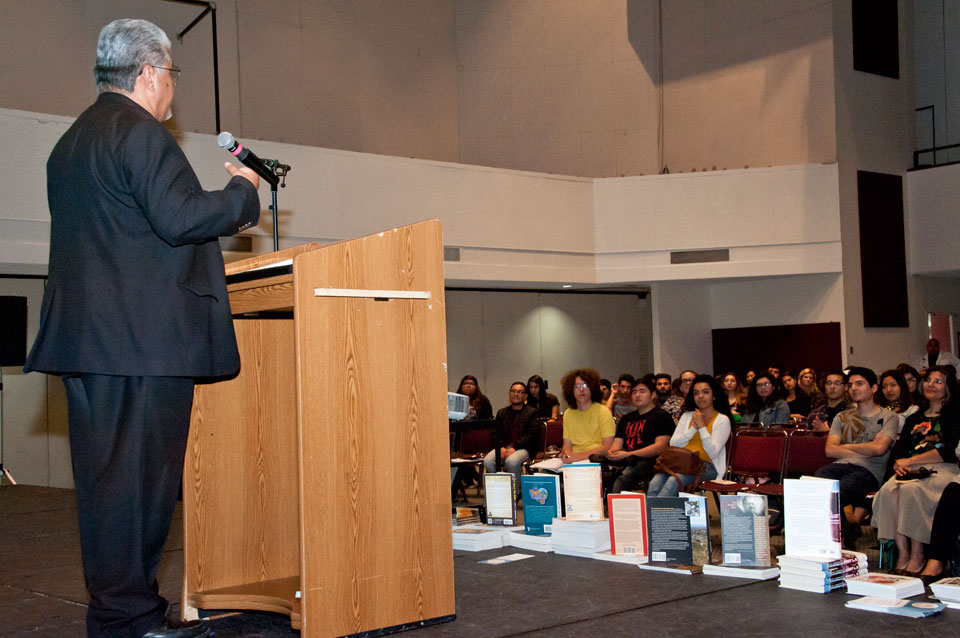
 experience
experience